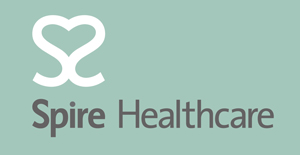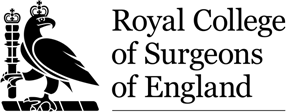Liposuction
Liposuction is for removing excess fat from areas around the body to give a more aesthetically pleasing body shape. It is not a treatment for obesity nor does it treat cellulite, however it can sometimes be used inorder to reduce areas of fatty excess prior to excisional surgery such as abdominoplasty. It is excellent for removing stubborn areas of fat that fail to respond to traditional weight loss methods.
The main areas where liposuction is used are in the tummy, hips, thighs, buttocks, upper arms and the chin region (usually combined with a face or neck lift procedure). Men can develop fatty swellings behind the nipples which look like breasts (gynaecomastia) and this may also be treated by liposuction. When applied to several areas the term liposculpture is frequently used.
You should have realistic expectations about what can be achieved with liposuction, which can improve your appearance and self-confidence, and I will discuss this with you at consultation.
The best candidates for liposuction are people close to their ideal weight with firm, elastic skin who have pockets of excess fat in certain areas. Your age is not a major consideration except that older patients tend to have reduced skin elasticity and therefore may not achieve the same result as a younger patient with tighter skin.
Pre-operative advice
Smokers have a higher risk of developing complications. It is therefore advised that smokers should stop smoking two weeks prior to surgery and for two weeks after surgery.
Patients on oral contraception (not HRT) should stop taking the pill for two weeks prior to surgery, and not restart until two weeks post surgery, this may also apply to HRT but not to gels or topical treatments. People with medical problems such as diabetes or significant heart or lung disease are at greater risk and will need to be carefully assessed before surgery.
It is not appropriate for a detailed discussion about your surgery on the day of your admission to hospital, so you should ensure we have discussed all of your expectations and the potential complications at your pre-surgery consultation. I will always see patients at least a second time prior to surgery to ensure the best and fullest understanding of the process and expected outcome of surgery.
Admission to Hospital
You will be admitted on the day of surgery, the procedure is almost always a daycase. I will see you prior to surgery and individually mark the areas to be treated, highlighting areas of emphasis.
The Operation
Liposuction can rarely be performed under local but rather general anaesthetic depending on the size of the area to be treated. The operation may take from thirty minutes in simple cases and up to four hours in extensive cases. Very small skin incisions are made around the area to be treated, usually in areas where small scars will be concealed.
The area to be treated is then infiltrated with a large volume of saline solution containing small amounts of adrenaline and local anaesthetic, which may have the effect of reducing blood loss and enabling a more precise, even distribution of fat removal.
VASER liposuction involves the use of ultrasound energy to 'melt' the fat prior to removal, this is a much more effective and efficient way to approach liposuction and is available at Adnova Clininc. A further benefit to VASERliposuction is the effect it can have on tightening the skin afterwards, I will discuss this with you at your consultation.
The fat is removed using a variety of liposuction cannulas (tubes) and the amount of fat removed from the various locations is measured. A dose of intravenous antibiotic is given during the operation to reduce the risk of infection.
What to expect after the operation
After liposuction a pressure garment should be worn day and night for the first two weeks, then as much as possible for the next four weeks. This helps reduce the swelling and aids in the recontouring of the treated areas. Manual lymphatic drainage massage can also be vry helpful in this circumstance.
The amount of swelling and bruising is variable and depends on the treated areas, the extent of the treatment and the response of the tissues to the trauma of liposuction, which varies considerably between patients. The swelling is usually at its worst 48 hours after surgery and tends to improve within seven to ten days though will take several weeks to settle completely.
Fluid may ooze out of the small incisions for the first two to three days following surgery. This may be quite marked and also may be blood-stained. This is entirely normal after tumescent liposuction. Your pressure garment will get messy so it can be removed in order for it to be washed, but it should be replaced as soon as possible.
You will be able to shower after a week, but you should avoid soaking the treated areas for two weeks.
After hospital discharge
You should arrange for someone to drive you home after the procedure and perhaps help at home for a day or two as you may feel stiff and sore. It is not unusual to feel a bit low in the days or weeks following your operation, but these feelings will subside as you begin to look and feel better.
At the initial consultation you will have been given advice about when you can return to work and for how long you should avoid strenuous activities and driving. You are encouraged to mobilise as much as possible following surgery as this helps to reduce the swelling and reduces the risk of a thrombosis (blood clot) in your legs.
What problems may I encounter?
The potential risks and complications will be fully discussed at your initial and pre-surgery consultation. Minor problems may include localised areas of lumpiness (which is due to deep bruising and should be treated by massage if still persistent after several weeks) and some numbness around the treated areas. Most of your bruising and swelling should have settled down within three weeks, but some swelling may remain for six months or more.
We will arrange follow up visits to monitor your progress. Ultimately, you should find that you are more comfortable in a wider variety of clothing and feel more at ease with your body. By eating a healthy diet and taking regular exercise you can help to maintain your new shape.
Adnova Clinic

Spire Cosmetic Surgery
 Click the logo for more ...
Click the logo for more ...
- Breast Augmentation
- Breast Lift/Mastopexy
- Breast Reduction
- Gynaecomastia Correction
- Abdominal Reduction
- Liposuction
- Arm Reduction
- Thigh Reduction
- Renuvion
- Labiaplasty
Our Procedures


CONTACT ME:
Tel: 01489 663273 or Email: heppellsec@adnovaclinic.com

